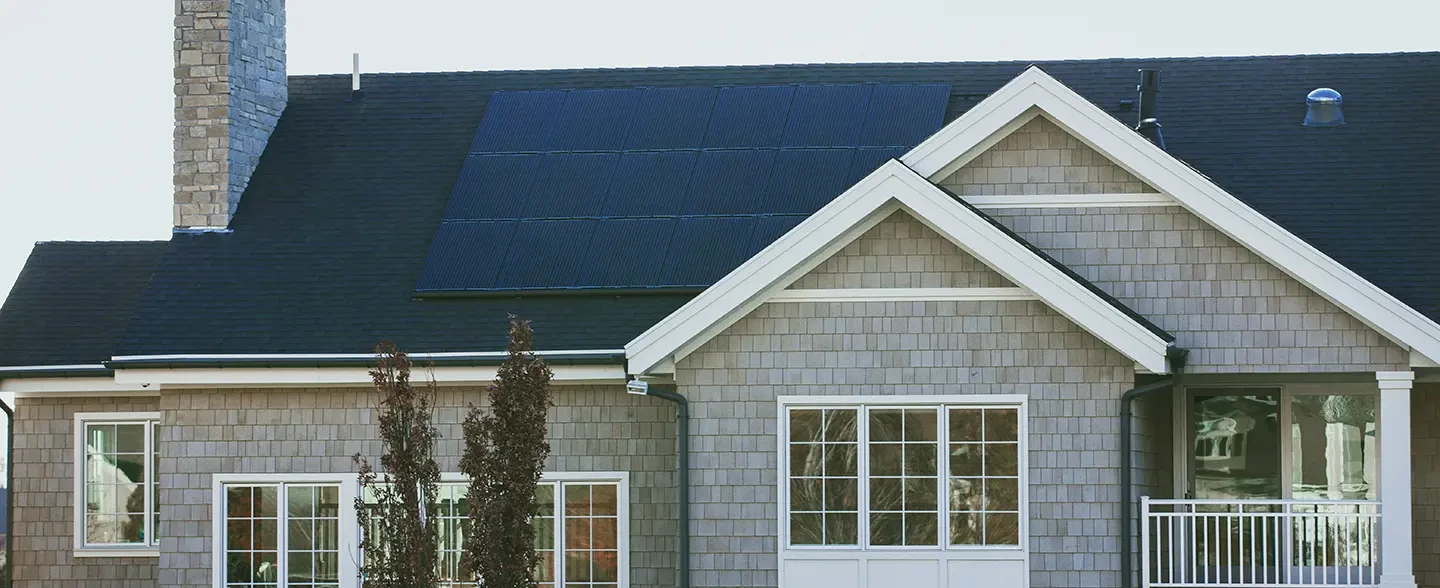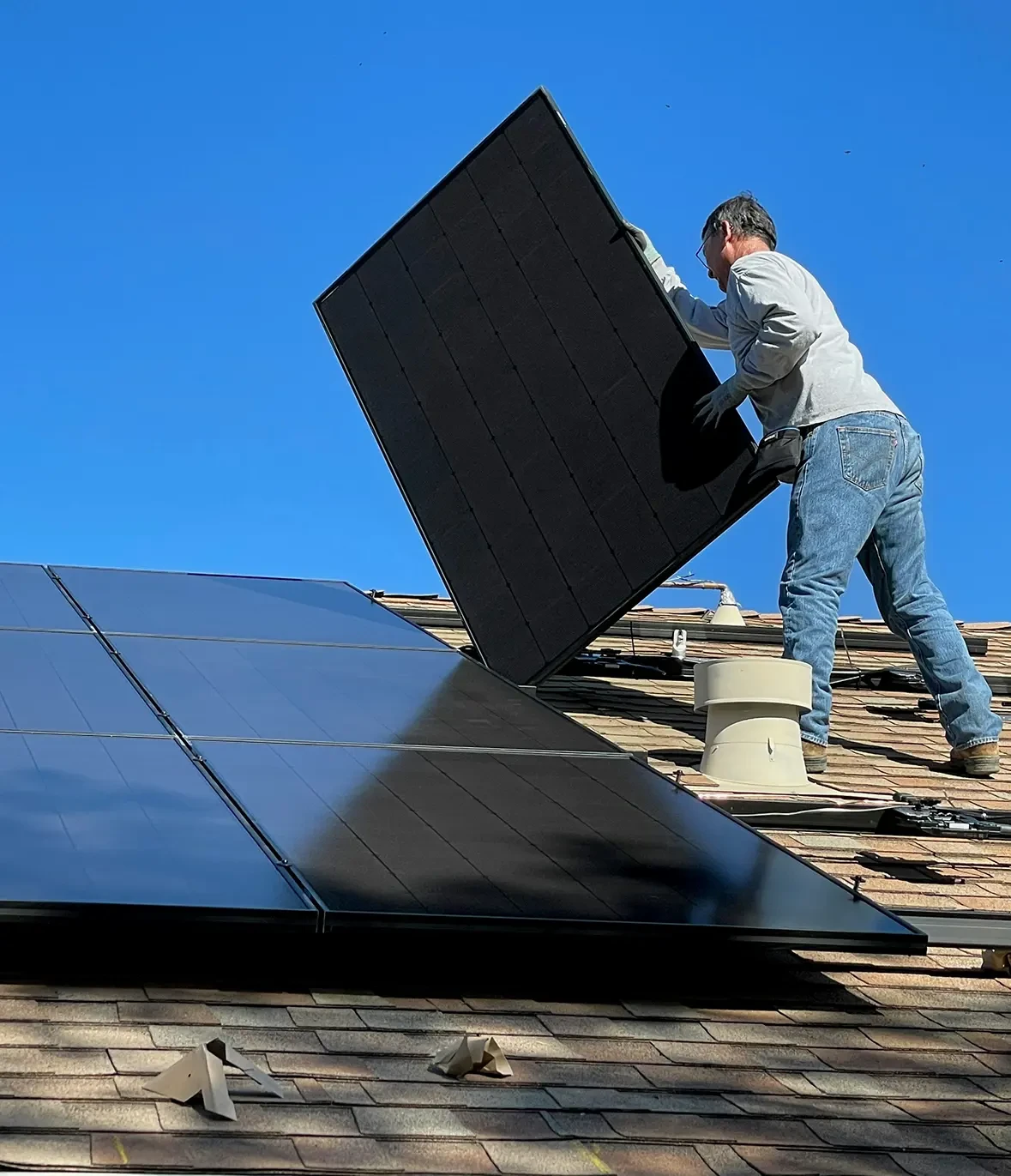AS FEATURED IN:

Solar energy is a transformative solution for reducing carbon footprints and lowering energy costs, making it an increasingly popular choice for homeowners. However, integrating solar panels into HOA-governed communities often leads to legal complexities, as some HOAs impose restrictive rules or unreasonable barriers.
In California, homeowners are protected by the Solar Rights Act, which prevents HOAs from enforcing regulations that unreasonably hinder the installation of solar energy systems.
At LS Carlson Law, we understand these laws and focus on ensuring that homeowners can pursue sustainable energy solutions without undue interference. Our solar attorney page highlights the legal protections available to you and how we can help you navigate disputes effectively.
Common Solar Disputes in HOA Communities
HOA solar disputes often arise when associations prioritize aesthetic or communal standards over homeowners' rights to renewable energy. LS Carlson Law helps resolve conflicts such as:
- Design and Placement Restrictions: Rules limiting the type, size, or location of solar panels, often compromising efficiency.
- Shading and Aesthetic Concerns: Objections based on how solar installations impact neighboring properties or community appearance.
- Permitting Challenges: Disputes over compliance with local building codes and approval processes.
- Transfer of Solar Systems: Issues when selling a property with existing solar panels, including disputes over ownership or maintenance obligations.
Our attorneys understand the intricate relationship between HOA bylaws and California’s solar laws, making us uniquely equipped to address these challenges.
How LS Carlson Law Can Help
At LS Carlson Law, we represent homeowners in their pursuit of energy independence and legal compliance. Our solar attorney page highlights the comprehensive services we offer, including:
- Thorough Case Evaluation: Reviewing HOA governing documents and solar installation plans to identify potential conflicts.
- Strategic Advocacy: Leveraging legal statutes like the Solar Rights Act to assert your rights.
- Mediation and Arbitration: Resolving disputes through alternative methods to save time and reduce costs.
- Litigation Support: Aggressively representing homeowners in court when HOAs overstep their legal boundaries.
We prioritize practical and sustainable resolutions, ensuring you can enjoy the benefits of solar energy while maintaining harmony in your community.
Why Choose LS Carlson Law for Your Solar Disputes
Homeowners facing solar disputes require a dedicated advocate to navigate complex legal terrain. At LS Carlson Law, we focus exclusively on representing individuals, never HOAs.
Our firm’s approach is tailored to your unique circumstances, ensuring that every legal strategy aligns with your goals.
Our commitment to homeowners includes:
1. Exclusive Representation: Advocacy solely for individuals, not associations.
2. Extensive Legal Knowledge: Proficiency in HOA governance and California solar laws.
3. Customized Solutions: Addressing each dispute with a plan specific to your situation.
4. Transparent Communication: Keeping you informed throughout the process to foster confidence and clarity.
Our solar attorney page demonstrates how we provide a strong voice for homeowners asserting their solar rights.
Process for Resolving Solar Disputes
Navigating HOA solar disputes requires a structured and efficient approach. LS Carlson Law guides homeowners through the following steps:
1. Initial Consultation: Discuss your solar project and HOA concerns to outline your legal options.
2. Document Review: Analyze HOA rules, local ordinances, and solar installation plans for compliance and potential conflicts.
3. Communication with HOAs: Draft formal correspondence to initiate resolution discussions.
4. Dispute Resolution: Pursue mediation, arbitration, or litigation to achieve a favorable outcome.
Our process, detailed on our solar attorney page, ensures your legal rights are protected every step of the way.
Legal Expertise for Solar Challenges: Guiding Homeowners Forward
With the demand for solar energy on the rise, various complexities arise when dealing with solar-related issues. Whether it's the unique challenges posed by condominium developments, the intricacies of homeowner associations, the maze of permitting requirements, or the unfortunate presence of unscrupulous installers and fraudulent lenders/lessees, we understand the multifaceted nature of the solar landscape in California.
At LS Carlson Law, we're here to provide comprehensive legal solutions that address these challenges head-on. Our team of experienced California real estate attorneys are experienced in solar-related matters, ensuring you have the knowledge and support needed to make informed decisions. From navigating the legal intricacies of solar installations in shared spaces like condominiums to protecting your rights against fraudulent actors, we're your trusted partners every step of the way.
Don't let the complexities of the solar industry hold you back. Contact LS Carlson Law today, and let us empower you to harness the benefits of solar energy while safeguarding your interests.
Solar fraud has become a growing concern in the renewable energy industries, affecting homeowners and developers alike. At LS Carlson Law, we provide robust legal services to address fraudulent practices in solar energy installations. Fraud can stem from deceptive contracts, misleading power purchase agreements, or unfulfilled promises regarding system performance.
Our attorneys have extensive experience navigating legal issues in the solar industry, ensuring that your investment is protected. By addressing fraud through tailored creative solutions, we help our clients recover financial losses and restore trust in their solar endeavors.
Conflicts between neighbors regarding solar power installations often arise due to shading, visual impacts, or property encroachments. These disputes play a key role in shaping the adoption of renewable energy resources in HOA communities.
LS Carlson Law resolves legal matters related to neighbor disputes by balancing individual rights with community interests. Our attorneys provide creative solutions to mitigate tension, safeguard your property rights, and promote harmonious living environments.
HOAs often impose restrictions on solar energy installations, creating barriers to sustainable energy adoption. LS Carlson Law specializes in addressing regulatory issues and conflicts stemming from HOAs’ failure to align with energy regulation laws.
Our firm plays a key role in ensuring HOA compliance with environmental matters and the California Solar Rights Act. By providing expert representation, we help homeowners navigate disputes over maintenance agreements, design limitations, and regulatory approval processes.
Property boundary and easement issues are common in solar power projects. Whether dealing with disputes over access or shading from neighboring properties, these matters require precise legal intervention.
At LS Carlson Law, we provide legal services to resolve these disputes efficiently. Our extensive experience ensures property rights are upheld while addressing overlapping regulatory compliance and environmental issues.
Compliance with local zoning and permitting regulations is essential for any solar energy installation. Delays or denials in permits can derail projects and incur significant costs.
Our attorneys address these challenges with a thorough understanding of energy regulatory frameworks and environmental review processes. From negotiating regulatory approval to resolving disputes with regulatory compliance, we support homeowners and businesses at every stage.
Issues with contractors can range from subpar workmanship to disputes over maintenance agreements or warranties. LS Carlson Law handles these legal matters with precision, advocating for homeowners’ rights in contractual disagreements.
Our extensive experience includes resolving disputes arising from faulty installations, unmet performance guarantees, and non-compliance with regulatory issues in the renewable energy industries.
Disputes over power sale agreements, loans, or leasing terms for solar power systems can hinder energy adoption. LS Carlson Law provides tailored solutions to resolve these conflicts effectively.
By collaborating with homeowners, developers, and financial institutions, we address legal issues involving predatory financing, ambiguous lease terms, and disputes over ownership rights.
When solar energy installations fail to meet promised efficiency or encounter system malfunctions, warranty disputes may arise. LS Carlson Law’s legal services focus on ensuring homeowners receive the support and compensation they deserve.
Our team addresses claims involving system performance, warranty coverage, and non-compliance with maintenance agreements. With our guidance, you can protect your investment and ensure operational stability.
Environmental concerns and regulatory compliance are critical in solar power projects. Disputes may involve environmental conservation laws, zoning restrictions, or failure to complete necessary environmental reviews.
At LS Carlson Law, we help clients navigate these complex legal issues to ensure projects meet all required standards. Our approach integrates creative solutions with a commitment to sustainable energy practices.
Incentives like tax credits play a key role in promoting renewable energy resources. However, disputes can arise over eligibility, documentation, or improper filing. LS Carlson Law offers comprehensive legal services to resolve such conflicts.
With extensive experience in navigating tax laws and working with financial institutions, we help clients secure the benefits they are entitled to, ensuring compliance with all regulatory approval processes.
Frequently Asked Questions
It's essential to review your HOA's governing documents, such as covenants, conditions, and restrictions (CC&Rs), to understand any specific guidelines or requirements related to solar installations within your community. California law generally supports homeowners' rights to install solar panels on their properties, but HOAs can have some say in the process to maintain community aesthetics. However, any HOA restrictions that unreasonably hinder solar installations are not enforceable under California law. Consulting with a local attorney who specializes in California real estate and solar law can help you navigate your specific situation and ensure that your rights are protected.
If your neighbors or HOA objects to your solar installation, it's important to understand your rights and maintain open communication. Familiarize yourself with California's solar access laws, address concerns with your neighbors, and review HOA guidelines. Seeking legal counsel from a solar and real estate attorney can provide guidance on your rights and potential mediation or legal remedies. Ultimately, cooperative communication and adherence to applicable laws and regulations are key to resolving solar installation disputes within your community.
To ensure a smooth process for your solar installation within an HOA-governed community, it's crucial to follow a few key steps. Start by reviewing your HOA's governing documents, particularly the covenants, conditions, and restrictions (CC&Rs). These documents often contain guidelines and requirements related to property modifications, including solar panel installations. Pay close attention to any sections specifically addressing solar installations, as they may outline approval procedures and aesthetic standards.
Next, initiate communication with your HOA. Notify them of your intent to install solar panels and inquire about the specific approval process. In many cases, you'll be required to submit a formal application that includes detailed plans and specifications of the installation. Be prepared to provide information on the type, size, location, and appearance of the solar panels. It's important to work collaboratively with your HOA, address any concerns they may have, and be open to making reasonable adjustments to your installation plans if necessary. Finally, ensure you adhere to all local permitting requirements and applicable regulations. Consulting with a solar-savvy attorney can be beneficial throughout this process to help you navigate any legal complexities and ensure a successful solar panel installation while complying with HOA regulations.
In condominium complexes, the installation of solar panels on shared spaces like a common roof can be complex but is often possible. The feasibility largely depends on your state's laws, your condominium association's governing documents, and any relevant local regulations. California, for example, has laws that protect a homeowner's right to install solar panels on shared spaces, provided certain conditions are met. However, it's essential to thoroughly review your condominium association's CC&Rs (covenants, conditions, and restrictions) to understand any specific guidelines or restrictions related to solar installations on common areas. In many cases, you may need to obtain approval from the condominium association and work closely with them to ensure a compliant and harmonious solar panel installation.
To navigate the process effectively, consider consulting with a knowledgeable attorney experienced in real estate and solar matters. They can provide guidance on your rights, assist in negotiations with the association, and help ensure that your solar installation aligns with all legal requirements while respecting the interests of the condominium community.
Yes, environmental regulations and conservation laws can indeed impact solar installations. When considering a solar installation, it's essential to be aware of and comply with any relevant federal, state, or local environmental laws and conservation regulations. These laws are designed to protect natural resources, habitats, and wildlife. Depending on your location and the specifics of your project, you may need to obtain permits or approvals to ensure your solar installation aligns with these regulations.
Common considerations include potential impacts on local ecosystems, water resources, and protected species. To address these concerns, it's advisable to work closely with environmental consultants and legal experts who specialize in solar projects. They can help you navigate the regulatory landscape, conduct necessary environmental assessments, and ensure your solar installation complies with all applicable laws, allowing you to harness the benefits of solar energy while protecting the environment.
If you encounter issues with a solar installation company, it's crucial to take specific steps to protect your rights and interests. First, carefully review your contract with the company to understand the terms, warranties, and responsibilities outlined therein. If the company has failed to meet its contractual obligations, document any issues, including delays, subpar workmanship, or non-compliance with warranties.
Next, attempt to resolve the matter through direct communication with the company. Express your concerns, provide evidence of the issues, and request corrective actions. Many companies value their reputation and are willing to address legitimate concerns to maintain customer satisfaction.
If direct communication does not lead to a satisfactory resolution, consider seeking legal counsel from an attorney experienced in solar disputes. They can guide you on potential legal remedies, such as pursuing a breach of contract claim, and help protect your rights throughout the process. Additionally, maintain thorough records of all communication, contracts, and evidence related to the dispute, as these documents may be essential in pursuing a resolution.
Leasing solar panels from a company is a contractual arrangement that typically comes with terms and conditions that must be carefully reviewed. If you're considering terminating your solar panel lease, start by examining your lease agreement thoroughly. Pay close attention to the sections related to termination or cancellation, as they outline the process and any associated costs.
Next, contact the solar panel leasing company directly to discuss your intent to terminate the lease. In some cases, they may have specific procedures or requirements for lease termination. Be prepared to address any financial obligations, such as early termination fees or remaining lease payments, as stipulated in your agreement. It's advisable to consult with an attorney experienced in solar and contract law to review your lease agreement and explore the best options for terminating the lease while protecting your rights and minimizing potential costs. Keep in mind that lease terms can vary, so understanding the specifics of your agreement is essential for a smooth lease termination process.
Selling a property with existing solar panels can have legal implications that homeowners should be aware of. Firstly, it's essential to understand the terms of any agreements related to the solar panels, such as lease agreements or power purchase agreements (PPAs). These agreements may contain provisions addressing the transfer or termination of the solar contract upon property sale. Reviewing and complying with these provisions is crucial to avoid contractual disputes.
Secondly, when selling a property with solar panels, full disclosure is key. You must inform potential buyers of the solar panel system's existence, any associated agreements, and its impact on utility bills and property value. Failure to disclose this information can lead to legal issues down the road. To navigate these complexities, consider consulting with an attorney experienced in real estate and solar matters. They can provide guidance on fulfilling legal obligations, ensuring proper disclosures, and facilitating a smooth property sale while preserving your rights and interests.
If you believe your solar panels are not performing as promised, there are steps you can take to address the situation. First, carefully review any agreements you have with the solar installation company, including warranties and performance guarantees. These documents typically outline the expected energy production levels and the responsibilities of the solar provider. Document any discrepancies between the promised performance and the actual results, including energy production data and any issues you've encountered.
Next, open a line of communication with the solar installation company to express your concerns and provide evidence of the performance issues. Many reputable companies take customer satisfaction seriously and may work to rectify the situation by adjusting the system or addressing any underlying issues. If direct communication doesn't yield a satisfactory resolution, consider seeking legal counsel from an attorney experienced in solar disputes. They can assist you in exploring legal remedies, such as breach of contract claims or warranty enforcement, to protect your rights and ensure that your solar panel system performs as intended. Remember to keep detailed records of all communications and relevant documents related to the performance concerns to support your case effectively.
If your solar contractor failed to obtain the necessary permits or comply with local regulations, you may have legal recourse to address the situation. Start by reviewing your contract with the contractor, as it often outlines their responsibilities regarding permits and compliance. Document any instances where the contractor did not fulfill these obligations, including specific permitting issues or regulatory violations.
Next, it's advisable to engage in direct communication with the contractor to address your concerns and give them an opportunity to rectify the situation. In some cases, contractors may be willing to obtain the required permits or make necessary corrections to bring the installation into compliance.
If your attempts to resolve the matter directly with the contractor prove unsuccessful, consulting with an attorney experienced in solar and construction law is a prudent step. They can provide guidance on potential legal actions, such as pursuing a breach of contract claim or notifying relevant regulatory authorities about the non-compliance. Remember to maintain thorough records of all communication and evidence related to the permit and regulatory issues to support your case effectively.
If your solar contractor has failed to deliver on their promises, it's essential to take certain steps to address the situation. Start by reviewing your contract with the contractor to understand the specific terms, warranties, and performance guarantees outlined therein. Document instances where the contractor did not meet their contractual obligations, including delays, subpar workmanship, or any other failures to deliver as promised.
Next, initiate direct communication with the contractor to express your concerns and provide evidence of the issues you've encountered. Many reputable contractors prioritize customer satisfaction and may be willing to take corrective actions to resolve the problems. Ensure that your communication is well-documented, as it may be valuable in potential dispute resolution processes.
If your attempts to resolve the matter directly with the contractor do not lead to a satisfactory resolution, consider consulting with an attorney experienced in solar and construction disputes. They can provide guidance on your legal rights and options, which may include pursuing a breach of contract claim or other remedies to hold the contractor accountable. Maintaining thorough records of all communication and evidence related to the contractor's failures is crucial to building a strong case.
The legal requirements for installing solar panels can vary depending on your location and the specific regulations in your area. To ensure compliance, it's essential to research and understand the applicable federal, state, and local laws and regulations governing solar installations. At the federal level, the Solar Investment Tax Credit (ITC) provides incentives for solar installations, but specific requirements may apply.
State laws and regulations also play a significant role, and they can differ widely. In some states, solar access laws protect homeowners' rights to install solar panels, while others may have specific permitting and interconnection requirements. Additionally, local zoning ordinances, building codes, and homeowners' association (HOA) rules may further influence the installation process. To navigate these legal requirements successfully, it's advisable to consult with a knowledgeable attorney experienced in solar and real estate matters. They can provide guidance tailored to your specific location and help ensure that your solar panel installation complies with all relevant laws and regulations.
Real Estate Dispute Resources
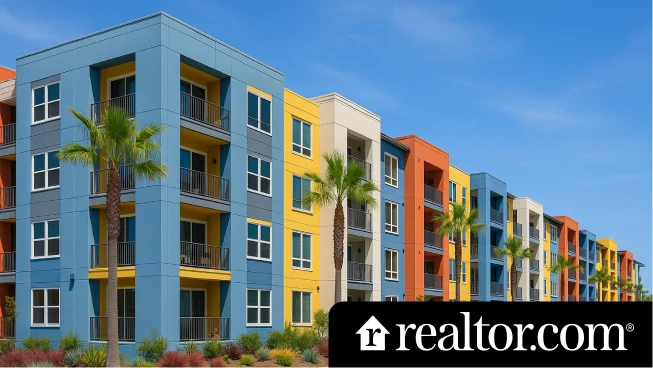
Buying a Condo in California Just Got Easier—Here’s the New Law That’s Turning the Tide on HOAs
Buying into an HOA-governed community has always carried risk—but a new California law changes the game. In this Realtor.com feature, LS Carlson Law attorney Luke Carlson explains how AB 130 caps excessive fines and restores power to homeowners, making condo living more accessible and less punitive across the state.
Visit Website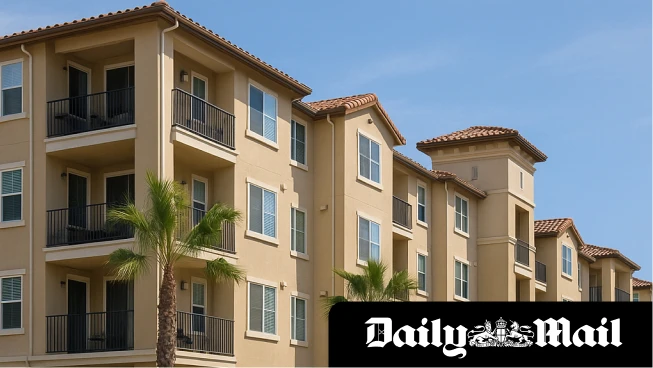
Homeowner slapped with massive fine from spying HOA for fixing door INSIDE her property
A report describing a California homeowner being threatened with $3,500 per week in fines for fixing a door inside her condo highlights concerns some owners raise about potential HOA overreach. It also references recent California legislation that may affect how associations impose and enforce certain types of fines and compliance measures.
Visit Website
She faced $500 daily HOA fines for an unapproved door. A new state law saved her
When homeowners associations abuse their power, the consequences can be severe — including outrageous fines for minor or private home improvements. In a recent Los Angeles Times feature, LS Carlson Law attorney Luke Carlson discusses how California’s new law, AB 130, finally reins in excessive HOA penalties and empowers homeowners to fight back.
Visit Website
Understanding Commercial Real Estate Transactions: Insights for Business Owners
Discover critical insights for navigating commercial real estate transactions with guidance from LS Carlson Law. Learn how to protect your business from costly lease pitfalls and ensure fair treatment in your property agreements.
Read More
Your Dream Home is Now a Nightmare: Is it Time to Take Legal Action? Featuring Real Estate Attorney, Kirk Pearson
Uncover the risks of buying property with unpermitted structures in California. Learn from LS Carlson Law's Kirk Pearson, featured in the LA Times, on how to safeguard your real estate investments.
Read More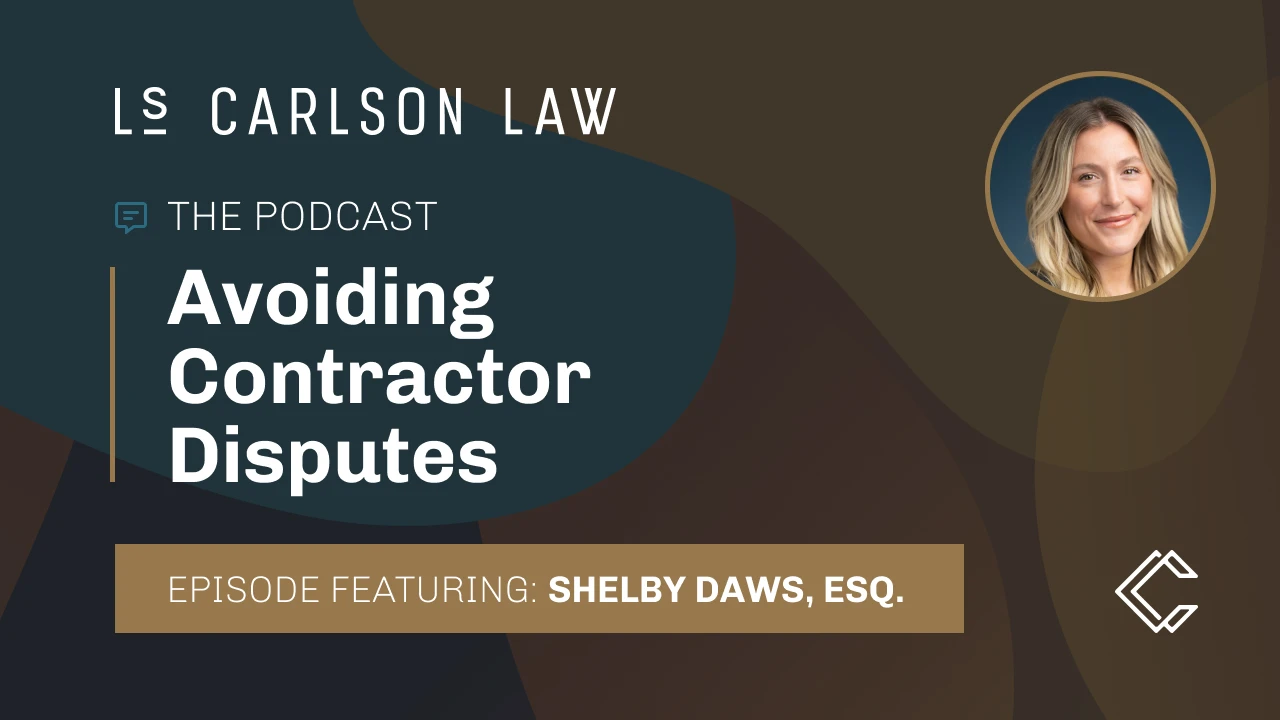
7 Essential Guidelines for Homeowners Engaging Contractors
Contractor dispute attorney Shelby Daws, Esq., unveils crucial tips for homeowners hiring contractors. From license checks to insurance and bond verifications, protect your home project.
Read More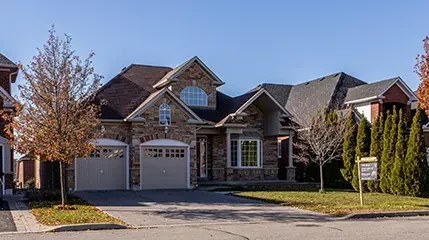
Your Dream Home is Now a Nightmare: Is it Time to Take Legal Action? (Failure to Disclose in California Real Estate)
Discover the hidden perils of 'Failure to Disclose' in California real estate transactions. Learn how LS Carlson Law can provide experienced guidance to protect your dream home investment.
Read More
Understanding Title Insurance in California
Explore the nuances of title insurance in California and how it safeguards your property interests.
Read More
Breach of Contract in California Real Estate Transactions
Navigate breach of contract disputes in California real estate transactions with LS Carlson Law. Understand your rights, remedies, and legal options.
Read More
Land Use Regulations: A Guide for California Property Owners
Discover how California's land use regulations impact property owners. Explore zoning, environmental rules, and common issues.
Read More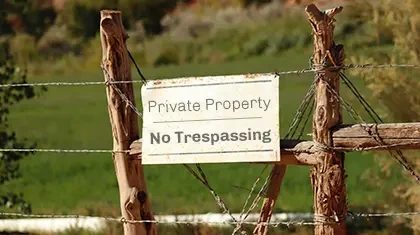
Guarding Your Sanctuary: Demystifying California Trespass Laws and Legal Avenues
Explore California's trespass laws and discover how to protect your property. From defining trespass to seeking legal remedies, this article covers a wide range of topics.
Read More
Bad Faith Insurance Practices in Real Estate: Your Rights in California
Uncover the world of bad faith insurance practices in California real estate. Learn your rights as a property owner, including common issues like unreasonable delays and denials.
Read More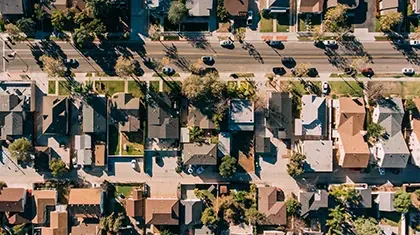
Nuisance Issues: California Laws and Remedies for Property Owners
Explore how Californian property owners can tackle nuisance issues with legal remedies and expert guidance. Discover the laws governing nuisances and the role of real estate attorneys in preserving your property's tranquility.
Read More
Resolving Neighbor Disputes: Options for California Property Owners
Explore effective legal pathways for California property owners to resolve neighbor disputes. From mediation to restraining orders.
Read More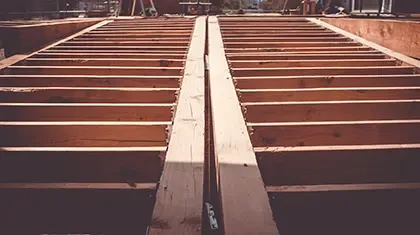
Why Unpermitted Work Can Be a Legal Nightmare for Homeowners
Learn why unpermitted work can spell legal trouble for homeowners, from code violations to potential fines and property loss. Discover the consequences and how to protect your investment by obtaining proper permits and inspections.
Read More
What to Do If Your Contractor Fails to Perform: Legal Options for Homeowners
Discover what legal steps homeowners can take when their contractors fail to perform. Learn how to review contracts, attempt resolution, explore alternative dispute resolution, and when necessary, file a lawsuit with guidance from a real estate attorney. Protect your investment with informed decisions.
Read More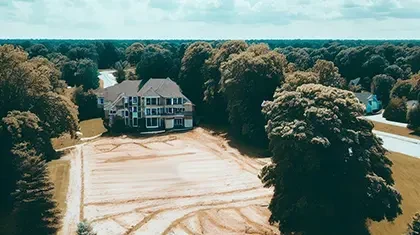
Dealing with Encroachment: What California Property Owners Need to Know
Discover how to effectively handle encroachment issues as a California property owner. Learn about the consequences of property intrusions, steps to resolve them, and the importance of seeking legal guidance from experienced real estate attorneys.
Read More
The Most Common Misrepresentations Made by Contractors: What Homeowners Should Be Aware of
Learn about the most common misrepresentations made by contractors and how to protect yourself as a homeowner. Be aware of false credentials, overstated qualifications, falsified references or reviews, and the importance of disclosure. Take proactive steps to prevent misrepresentations. Consult a contractor dispute attorney for guidance.
Read More
Understanding Non-Disclosure Laws in California
Discover the intricate world of non-disclosure laws in California and how they impact your rights as a buyer or obligations as a seller. Uncover the importance of disclosure, legal remedies for non-disclosure, and how to navigate the real estate purchase process with transparency.
Read MoreTips to Avoid a Contractor Dispute
In this episode of our podcast, our Founder, Luke Carlson sits down with LS Carlson Law Attorney, Shelby Daws to discuss tips to avoiding a Contractor Dispute.
Watch Video on YouTubeAn Elite Strike Force in the Legal Industry
LS Carlson Law is proud to be considered an Elite Strike Force in the Legal Industry. We are comprised of battle-tested, highly skilled lawyers who operate with a single objective – to win.
Legal conflicts with your HOA over solar installations can be frustrating and time-consuming. At LS Carlson Law, we simplify the process, advocating for your right to renewable energy while protecting your investment and property rights.
Contact LS Carlson Law today at 949-421-3030 to schedule a consultation. Our solar attorney page underscores our commitment to empowering homeowners and resolving disputes efficiently.

Partner
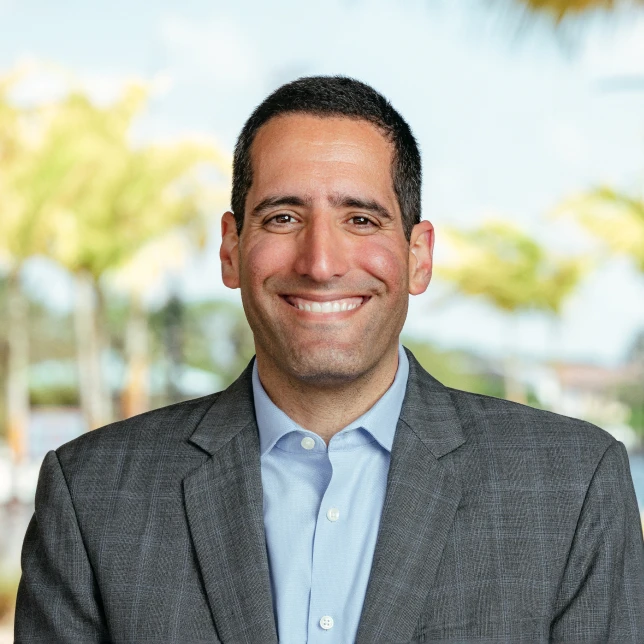
Partner

Partner

Partner

Partner

Partner

Partner

Partner

Senior Associate

Senior Associate

Senior Associate

Senior Associate

Senior Associate

Senior Associate

Senior Associate

Senior Associate

Senior Associate

Senior Associate

Senior Associate

Senior Associate

Senior Associate

Associate

Associate

Associate

Associate

Associate

Associate

Associate

Associate

Associate

Associate

Associate

Paralegal

Accounts Receivable

Executive Analyst

File Clerk

Administrative Assistant

Senior Paralegal

Accounts Receivable Assistant

Administrative Assistant

Client Services Specialist

Paralegal

Client Services Specialist

Director of Administration

Client Services Specialist

Paralegal/Administrative Assistant

Administrative Assistant

Talent & Culture Coordinator

Legal Assistant

Administration Assistant

Director of Client Services

Paralegal

Director of Billing Services

Client Services Specialist

Legal Assistant

Client Activation Coordinator/Assistant Case Manager

Accounts Receivable

Tell Us About Your Solar Dispute
When you hire LS Carlson Law, you can be assured you’ll be getting an aggressive firm fully dedicated to achieving your legal objectives. Don’t take our word for it, we encourage you to take a look at the numerous five-star client reviews. If you are ready to end the nightmare with your solar project, call us now or fill out the form to set an appointment.


